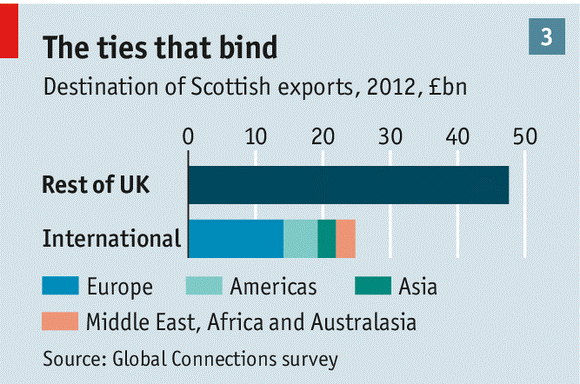WHAT’S BEHIND THE SLUMP IN THE PRICE OF OIL?
GEORGE KEREVAN
Forget the gyrations on the stock market. The real shocker is that oil prices have crashed. America’s West Texas Intermediate (WTI) crude has slumped by 20 per cent since June, to just under $83 per barrel.
World benchmark Brent petroleum has spiralled downwards by almost a quarter lower, to $US86.46 per barrel. What gives?
Ask our old friends, the Saudis. The Saudi regime has just abandoned its long-term plan to keep oil at $100+. Instead it plans to pump more oil and sell it cheap on forward markets, to bring prices to around $80 a barrel. Their OPEC partners are far from happy, as will become apparent at next month’s crucial summit of the cartel.
THE SAUDI OIL PLAY
Why is the Saudi regime behaving in such a seemingly strange fashion? After all, cutting the price radically will bring in less cash.
Two reasons: First, the Jihadists of Islamic State (IS) are selling a reputed 80,000 barrels of oil a day through Turkish middlemen, to fund their insurgency in Syria and Iraq – an insurgency which ultimately is aimed at overthrowing the Saudi regime itself. The Saudis have manipulated the fall in oil prices to undercut IS and deprive it of funds. They are even offering to sell cheap oil two years in advance.
To date, the Turkish government has turned a blind eye to oil smuggling by IS (and the other groups) because the Sunni Jihadists are bent on crushing the upstart Kurds headquartered just across the border in Syria, who want independence from Turkey.
Last month, in the only trial so far of local oil smugglers, Turkish army personnel complained to the judge about their “lack of orders” to halt the illegal cross-border trade. The judge posted bail of 750,000 Turkish lira ($332,000) for the alleged leader of this particular smuggling network. He was shocked when the money was delivered in cash the next day.
Personally, I doubt if slashing official oil prices will undermine IS. After all, the Jihadists need hard cash (i.e. US dollars) rather than commercial profit. Indeed, the Turkish oil smugglers are already under-cutting the official price.
Second, the Saudis are prepared to sell oil at cost is to undercut US shale oil. The biggest threat to the Saudi regime is if America becomes self-sufficient in energy. So the regime wants to sell oil below the cost of producing shale oil and gas. How long before they notice in Congress?
The immediate problem for the North Sea is that we need a floor of $100 a barrel to develop new oil fields and squeeze more out of existing ones.
IN PRAISE OF CHEAPNESS?
By old mate Bill Jamieson (of this parish) argues that cheaper oil is a good thing. And of course he is correct to say that no one – except monopolists and corrupt Middle Eastern regimes – benefits from dear energy. In fact, if the Saudis succeed in manipulating the price down to $80, that will give consumers and companies across the world an extra $660bn per annum in their pockets - a vital Keynesian boost to economic growth just when the global economy is stalling. Hooray for that!
But I insist on looking at this in the round. Energy prices – oil, nuclear and renewables – are increasingly dictated by politicians rather than the market place. That is dangerous, because it leads to a massive misallocation of resources and (as a result) less wealth to go round.
But this misallocation is not just a function of high oil prices affording ‘economic rent’ to monopolists, hedge fund commodity traders or dictatorships in the developing world.
A cardinal danger is the instability unleashed by sudden movements in oil prices – up or down – resulting from botched attempts at rigging markets. Such instability kills investment and magnifies political crises. That is my prime worry about the sudden collapse in the global oil price in the last few weeks.
If oil slides to $80 a barrel, the OPEC oil producing countries will lose a fifth of their income. Those countries - mostly in the Middle East and North Africa - have expanded public spending and borrowing after the street uprising of the Arab Spring, in order to buy off public opinion.
Any prolonged fall in income of this magnitude will cause economic chaos, popular unrest and help Jihadists such as Islamic State. Above all, it could undermine the Saudi regime itself.
Where will this end? Consider: To outflank IS and bolster the legitimacy of their regime, the Saudis are now set on confrontation with their old adversary, Shiite Iran. Simultaneously, Tehran is wooing the West in order to escape UN sanctions, the better to modernise its decrepit oil industry and so arm itself against the billion Sunnis that Saudi Arabia is mobilising against them. China is turning itself into a new imperialist power in Africa, in a bid to secure alternative supplies of oil. Obama’s isolationism will give way to a more interventionist America regime, with Britain – as always – in tow. Could this be the end of globalisation as we know it?
DEFLATION THREAT
There is also a case for saying that the injection of demand resulting from cheaper oil will be offset to a degree by other factors. Falling oil prices will add directly to the deflation that is gripping the Eurozone. That will increase the real weight of public and private debts. Greater real debts will slow the global economy further.
Amid last week’s stock market ups and downs, there was a dangerous new trend. Yields for, French, Italian, Spanish, Irish, and Portuguese sovereign bonds suddenly diverged from German yields, which hit new (safe haven) lows. We’ve not seen this divergence since the pit of the euro crisis. It is highly indicative that markets fear deflation is becoming a genuine threat to the future of the Eurozone and the single currency. The markets are beginning to price in default risk once again.
Next stop: the Greek elections.
WHAT NEXT?
What happens if oil prices stay low? For starters, the major oil producing states will have to tap into their foreign currency reserves to meet budget requirements. Oil at $80 a barrel is far below the budget ‘break-even’ price needed to cover domestic and military spending in most oil states: Iran ($130), Algeria ($115), Bahrain ($115), Iraq ($105), Russia ($105), or Nigeria ($105). I’m not even sure the Saudis can sustain anything below $90.
Result: a massive sell-off of foreign bonds, equity holdings and gold to plug the budget gap. Russia has already dumped circa $7bn of assets in recent weeks to defend the rouble. Think what that will do to the FTSE.
Meanwhile, in the United States, the shale oil industry is not entirely immune from global energy price trends. There is a lot of dispute regarding the minimum price US shale gas and oil needs to break even. Experts at the International Energy Agency say that 98 per cent of oil and condensates produced in the US have a break-even price of less than $80 a barrel, and 82 per cent are even lower, with a break-even point of $60. If so, the Saudis will have to try harder to break US competition.
On the other hand, other studies suggest that new marginal shale developments in America will need a price floor of $75-$80 a barrel. If so, they will not provide the sort of high profit margins the industry has begun to expect. But US oil firms have already run up big debts to expand rapidly into shale. Any price squeeze will hurt cash flow. A rise in interest rates, in this context, could be catastrophic. (So expect more QE.)
I know what you are thinking. It’s Kerevan being gloomy again. And yes I do realise that the market economy has a remarkable ability to discover economic solutions that we commentators are blind to. The oil crisis could accelerate a shift to cheap solar power (a better bet than wind) and a new period of economic growth. The end of the Era of Big Oil - by removing the geopolitical importance of the Middle East - could lance the threat from the Jihadists once and for all.
It’s just that the road between where we are now and that optimistic outcome seems rather long… and rather littered with landmines, real and political.




